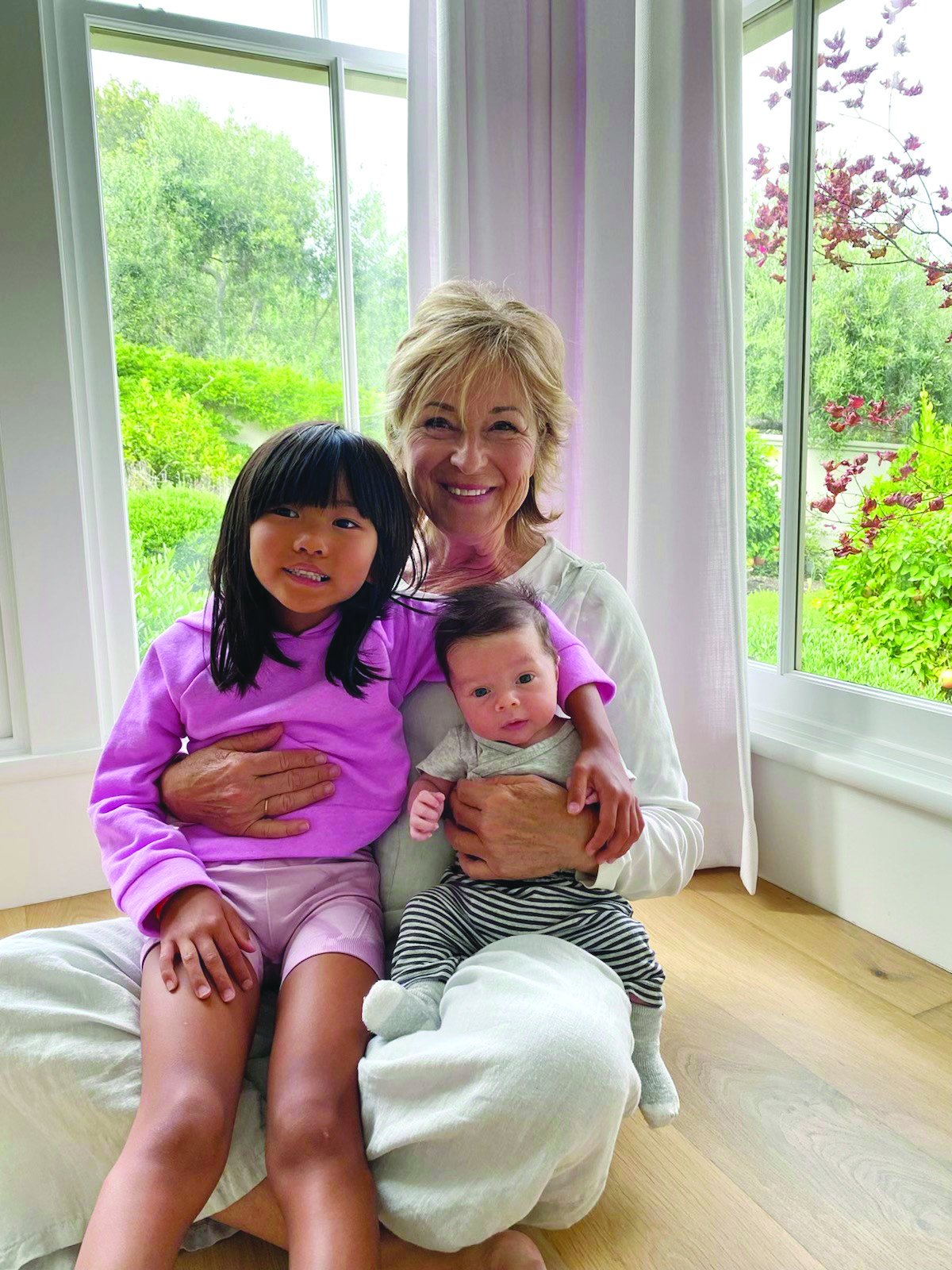When breast cancer patient and Ventura resident Cindie
Medak began grappling with where and how to
receive the chemotherapy she required after surgery in 2019,
she and her daughter began looking for a solution that could
preserve her hair. “I am not a vain person. With cancer, hair
should have been the last thing on my worry list. Hair does not
have to be that big of a deal, but for me, it was,”” Cindie admits.
She researched different cold cap and scalp cooling systems
where patients wear tightly-fitting hats or helmets filled
with ice or cold liquid during their chemotherapy infusions.
These devices protect hair by narrowing the blood vessels
beneath the skin of the scalp. This decreases the amount of chemotherapy medicine that gets to the hair follicles. Less
medicine in the follicles often means less hair lost.
Some of the cold cap systems sounded complicated to Cindie,
and she felt they might add more pressure to an already
stressful situation, but the clinically-proven Paxman scalpcooling technology at Ridley-Tree Cancer Center sounded
promising. At the Cancer Center, staff members assist
patients in wearing the cold cap during their chemotherapy
sessions, a process that usually requires a patient to stay for
approximately one additional hour following treatment.
When Cindie and her two adult children met with Sam
Howland, Ridley-Tree’s Patient Support and Integrative Services
Associate Director, to discuss the option, they were convinced
Ridley-Tree was the right place for chemotherapy and for the
cold caps. “I could not get enough of how everyone was so lovely,
sweet, kind and caring,” Cindie comments.

The Cold Cap Program at Ridley-Tree Cancer Center is sponsored by Athena Cosmetics in partnership with the Cancer
Foundation of Santa Barbara. The Cancer Foundation received
a two-year $100,000 grant to provide caps for local cancer
patients receiving chemotherapy treatment who are identified
as eligible for the protocol. The Paxman system has helped over
100,000 cancer patients in more than 50 countries worldwide
to retain their hair during chemotherapy, and it worked for
Cindie, too. Once she found a size that fit properly, Cindie
describes the experience like a brain freeze from eating cold foods. “You do get that freezing feeling in your eyes and your
head, but it’s only for five minutes and then you are OK,” she
explains. The cap stayed on during each of her four, two-hour
chemotherapy sessions. The results made the brief discomfort
worthwhile. Cindie kept about three-quarters of her hair, and
since her follicles were preserved, the new hair that grew in
was straight, like it was before her diagnosis.
The teams at Ridley-Tree Cancer Center and the Cancer
Foundation of Santa Barbara understand the value of retaining
as much normalcy as possible for patients throughout their
cancer treatment, and the value of providing a service that is
typically not covered by insurance or Medicare. “We believe this
is a small way to help patients preserve their
self-image and feel that their identity has
not been taken from them. It helps them feel
like themselves,” shared Lori Willis, Cancer
Foundation Executive Director. At 67 years-old
and in remission from her cancer, “Nonna Cindie” as her eight
grandchildren like to call her, is ready to focus on enjoying life
and retirement. She reflects on how Ridley-Tree and the cold caps
program gave her extra support at a difficult time. “I was blessed
to receive that grant. It was such a beautiful gesture,” she says.
“It definitely helps to have caring, loving people around you when
you go through something like this. It is so healing.”
Photo caption: (Bottom) Cindie Medak with two of her grandchildren